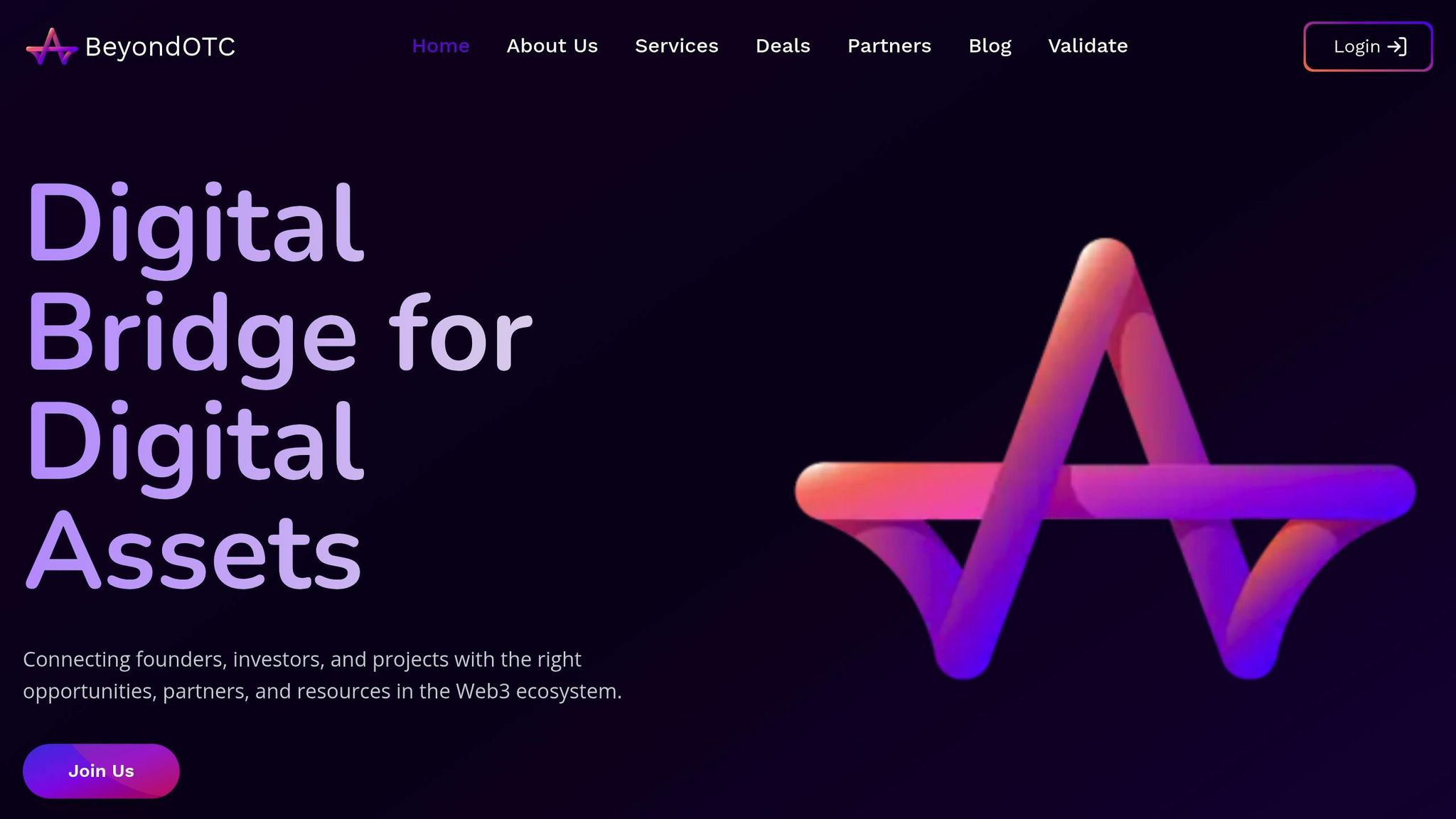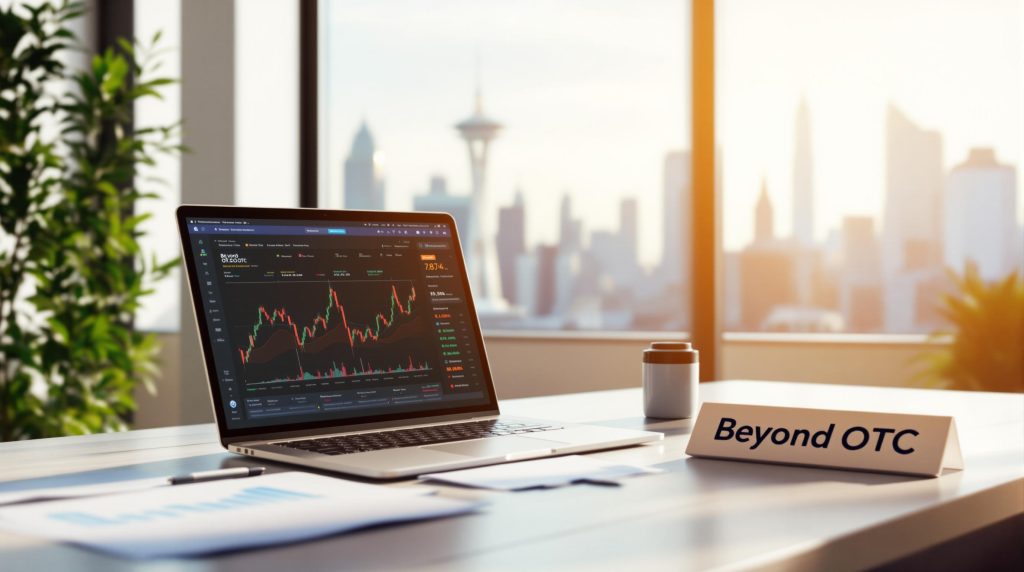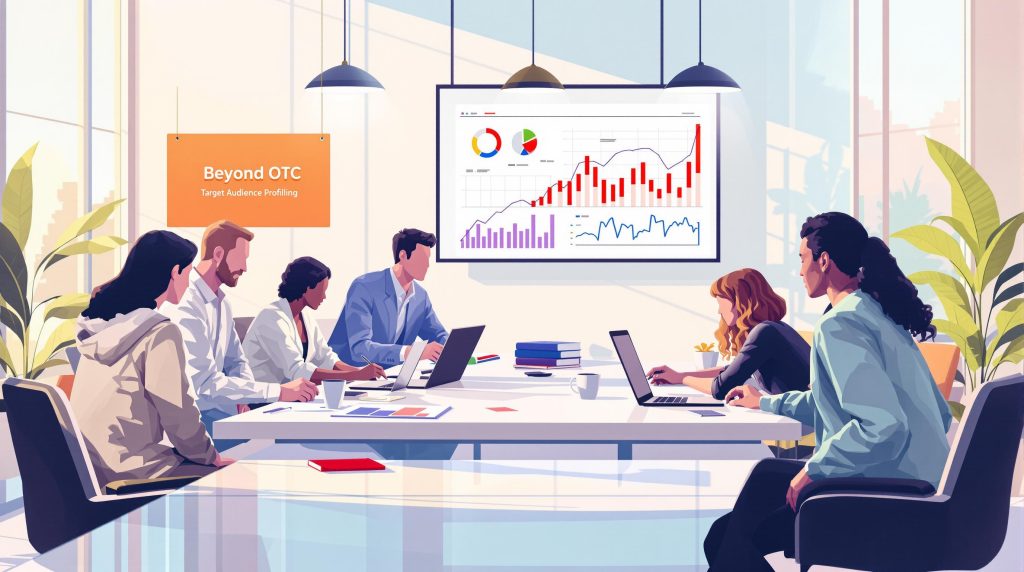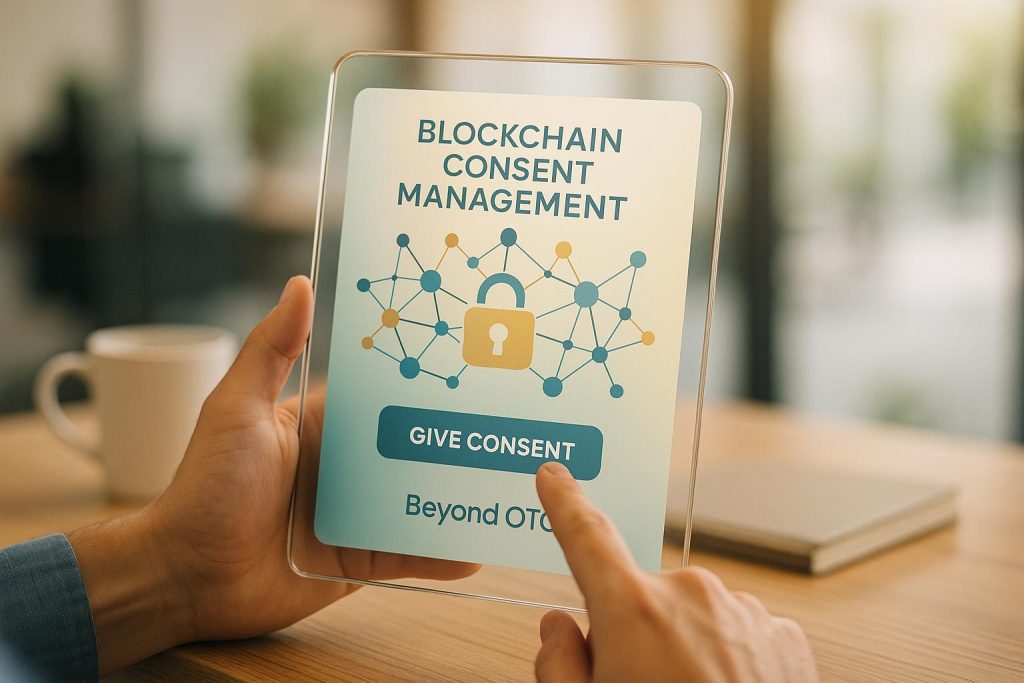Want to run a compliant OTC cryptocurrency desk? Here’s what you need to know right away:
- OTC desks handle large-scale crypto trades outside traditional exchanges, requiring deep liquidity and robust algorithms.
- Licensing is mandatory to ensure compliance with regional regulations. Key requirements include AML/KYC protocols, financial stability, and regular reporting.
- Regulations vary by region:
- US: Federal registration with FinCEN + state-specific licenses (e.g., BitLicense in NY).
- EU: AMLD5 and upcoming MiCA framework.
- Asia-Pacific: Singapore’s Payment Services Act and Hong Kong’s VASP regime.
- Key compliance areas:
- AML/KYC: Monitor transactions, verify identities, and assess risks.
- Financial reserves: Maintain $250K–$5M in capital and $1M–$10M in insurance.
- Reporting: Submit transaction reports, financial statements, and compliance updates.
Licensing steps: Prepare documents, submit applications, and maintain compliance post-approval. Need help? Services like BeyondOTC simplify the process.
Quick Tip: Focus on strong AML/KYC processes and tailor your licensing strategy to local regulations to ensure success.
Webinar | Licensing Regimes for Virtual Asset OTC Services & …
License Types by Region
Licensing rules for OTC desks vary by region, requiring businesses to navigate different compliance frameworks to operate legally.
US Licensing Rules
In the United States, OTC desks must meet both federal and state requirements. Federally, businesses need to register with FinCEN as Money Services Businesses (MSBs). State-level regulations differ widely. For example, New York enforces the BitLicense, while Wyoming offers the SPDI charter specifically for digital asset businesses.
EU Regulations
In the European Union, OTC desks operate under the 5th Anti-Money Laundering Directive (AMLD5) and will soon adhere to the Markets in Crypto-Assets (MiCA) framework. Businesses must register with local authorities and establish strong anti-money laundering (AML) and counter-financing of terrorism (CFT) measures.
Singapore and Hong Kong Rules
Singapore and Hong Kong have clear licensing requirements for cryptocurrency businesses. Singapore’s Payment Services Act introduces tiered licenses based on the size and scope of operations. In Hong Kong, the Virtual Asset Service Provider (VASP) regime mandates licensing for OTC desks, with a focus on areas like cybersecurity and asset custody.
Grasping the specifics of these regulations is crucial for securing licenses and maintaining compliance.
Main License Requirements
Operating a compliant OTC desk requires adherence to strict regulatory standards designed to safeguard market integrity and prevent financial crimes. Below, we break down the key compliance areas: AML/KYC protocols, financial stability, and reporting obligations.
AML and KYC Standards
Anti-Money Laundering (AML) and Know Your Customer (KYC) protocols are critical components of OTC desk compliance.
AML requirements include:
- Systems to monitor transactions and flag suspicious activity
- Risk assessment models
- Designated compliance officers
- Staff training on relevant regulations
- Clearly documented compliance policies
KYC procedures focus on:
- Verifying customer identities with government-issued IDs
- Documenting the source of funds
- Identifying beneficial ownership for corporate accounts
- Checking for politically exposed persons (PEPs)
- Evaluating overall risk levels
Financial Requirements
OTC desks must maintain adequate financial reserves and implement risk management measures to ensure stability.
| Requirement Type | Common Threshold | Purpose |
|---|---|---|
| Capital Reserve | $250,000 – $5M | Operating reserve |
| Insurance Coverage | $1M – $10M | Asset protection |
| Liquidity Ratio | 1:1 to 1:3 | Support transactions |
| Reserve Requirements | 10% – 20% | Manage financial risks |
Operational safeguards include:
- Multi-signature wallet systems
- Cold storage for the majority of assets
- Regular external audits
- Comprehensive business continuity plans
- Advanced cybersecurity protocols
Reporting Rules
OTC desks are required to submit various reports regularly:
-
Transaction Reports
- Transactions exceeding $10,000
- Suspicious activity reports (SARs)
- Currency transaction reports (CTRs)
- Cross-border transfer details
-
Financial Statements
- Balance sheets
- Profit and loss statements
- Reports on capital adequacy
- Risk exposure summaries
-
Compliance Reports
- Updates to AML/KYC procedures
- Records of staff training
- Results from internal audits
- Incident reports and their resolutions
Most regulatory frameworks mandate that all reports and related documentation be retained for 5 to 7 years.
sbb-itb-7e716c2
License Application Process
Getting an OTC desk license involves careful preparation and meeting regulatory standards. Here’s a breakdown of the key steps:
- Gather Required Documents: Collect all necessary business, financial, and compliance paperwork as outlined by your local regulatory authority.
- Submit Your Application: Start with an initial submission, which typically includes background checks, technical evaluations, and possibly interviews. Be prompt in addressing any feedback or requests from regulators.
- Stay Compliant After Approval: Once licensed, ensure ongoing compliance through regular audits, timely reporting, and adherence to any updated regulations.
Problems and Solutions
Common Application Mistakes
Applying for an OTC desk license can be tricky, and one common reason applications fail is incomplete AML (Anti-Money Laundering) or KYC (Know Your Customer) documentation. Keeping your records accurate and up to date is a must to meet regulatory requirements. Tackling these issues early can make the application process smoother.
Application Tips
Here are some practical steps to improve your chances of success:
- Conduct thorough internal reviews to sharpen your AML and KYC processes and spot areas for improvement.
- Use a centralized system to organize compliance documentation, making sure everything stays updated and easy to access.
- Assign clear roles within your compliance team to show a strong commitment to meeting regulatory expectations.
BeyondOTC Support Services

If you need extra help navigating this process, BeyondOTC offers tailored support services. Their team specializes in legal consultancy and compliance management, helping clients tackle the challenges of licensing. BeyondOTC connects businesses with blockchain-savvy legal professionals who provide guidance on compliance and licensing. They also assist in building strong AML and KYC systems to align with regulatory requirements.
Through their extensive industry network, BeyondOTC collaborates with top legal firms, compliance tech providers, and licensing experts to simplify the application process and increase your chances of success.
Conclusion
Obtaining an OTC desk license requires strict compliance with various regional regulations. It involves mastering AML/KYC protocols, adhering to financial standards, and meeting reporting requirements.
Key Points
Here’s a breakdown of the main strategies covered:
Regulatory Compliance: Following licensing requirements is critical for legal operations and maintaining market trust. This includes developing strong AML and KYC systems that meet current legal standards.
Regional Differences: Licensing rules vary by region, and understanding these differences is essential for businesses operating in multiple markets.
Support Services: BeyondOTC connects businesses with blockchain legal experts and compliance technology providers, offering valuable legal consultancy services.
The earlier steps and requirements for licensing are essential to these strategies. To succeed, businesses should focus on:
- Keeping AML/KYC protocols updated and staying informed about regulatory changes
- Maintaining precise financial records
- Submitting timely reports to regulatory bodies
For institutional clients, creating strong liquidity pools and implementing reliable trading systems are key priorities. By ensuring proper licensing and compliance, OTC desks can build client trust and meet legal obligations.
Expert partners like BeyondOTC can be instrumental in navigating the complexities of licensing. Their legal expertise, compliance tools, and industry connections provide the support needed to secure licenses and maintain operational standards.




